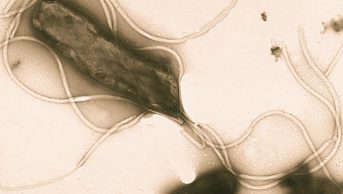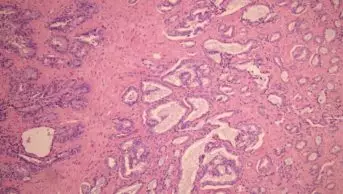Many patients with familial hypercholesterolaemia (FH) fail to achieve recommended levels of low-density lipoprotein (LDL) cholesterol despite pharmacological therapy.

Source: PDBbot / Wikimedia Commons
Evolocumab is a fully human monoclonal antibody to PCSK9 (pictured)
Two studies in The Lancet (online, 1 October 2014) show that evolocumab, a fully human monoclonal antibody to PCSK9, reduced LDL cholesterol significantly more than placebo when added to background lipid-lowering therapy in patients with FH, including those with the rare homozygous form of the disease.
The TESLA Part B study[1]
included 49 patients with homozygous FH while RUTHERFORD-2[2]
enrolled 331 patients with heterozygous FH. Evolocumab, administered either fortnightly or monthly, yielded rapid reductions in LDL cholesterol and was well tolerated.
Evolocumab has previously demonstrated efficacy in a broad range of statin-treated patients with primary hypercholesterolaemia.
References
[1] Raal FJ et al. Inhibition of PCSK9 with evolocumab in homozygous familial hypercholesterolaemia (TESLA Part B): a randomised, double-blind, placebo-controlled trial. The Lancet 2014. doi: 10.1016/S0140-6736(14)61374-X (accessed 1 October 2014).
[2] Raal FJ et al. PCSK9 inhibition with evolocumab (AMG 145) in heterozygous familial hypercholesterolaemia (RUTHERFORD-2): a randomised, double-blind, placebo-controlled trial. The Lancet 2014. doi:10.1016/S0140-6736(14)61399-4 1 (accessed 1 October 2014).


